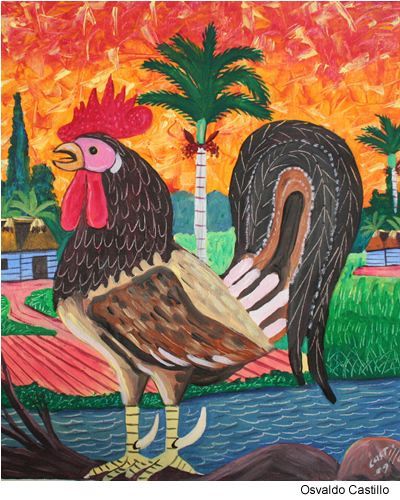
Yoani Sanchez, Havana, 24 July 2009 — The idea of combining study with work in high schools looked very good on paper. It had the air of an immortal future in the office where they turned it into a ministerial order. But reality, stubborn as always, had its own interpretation of the schools in the countryside. The “clay” meant to be formed in the love of the furrow, was made up of adolescents far away—for the first time—from parental control, who found housing conditions and food very different from their expectations.
I, who should have been the “new man” and who barely could have become a “good man,” was trained in one of these schools in the Havanan municipality of Alquizar. I was fourteen and left with a corneal infection, a liver deficiency and the toughness that is acquired when one has seen too much. When matriculating, I still believed the stories of work-study; at leaving, I knew that many of my fellow students had had to exchange sex for good grades or show superior performance in agricultural production. The small lettuce plants I weeded every afternoon had their counterpart in a hostel where the priorities were bullying, lack of respect for privacy and the harsh law of survival of the fittest.
It was precisely one of those afternoons, after three days without water and with the repetitive menu of rice and cabbage, that I swore to myself that my children would never go to a high school in the countryside. I did this with the unsentimental adolescent realism that, in those years, calms us and leaves us knowing the impossibility of fulfilling certain promises. So I accustomed myself to the idea of having to pack bags of food for Teo when he was away at school, of hearing that they stole his shoes, they threatened him in the shower or that one of the bigger ones took his food. All these images, that I had lived, returned when I thought about the boarding schools.
Fortunately, the experiment seems to be ending. The lack of productivity, the spread of diseases, the damage to ethical values and the low academic standards have discredited this method of education. After years of financial losses, with the students consuming more than they manage to extract from the land, our authorities have become convinced that the best place for a young person is at the side of his parents. They have announced the coming end of the schools but without the public apologies to those of us who were guinea pigs for an experiment that failed; to those of us who left our dreams and our health in the high schools in the countryside.
